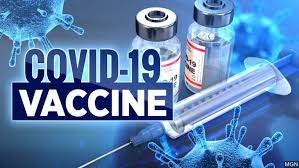
The vaccine is now available to individuals age 80 and older, as well as to licensed and unlicensed healthcare workers and first responders who have face-to-face interactions with patients or infectious material or work in a public-facing position that requires in-person contact. A photo ID, proof of age, or verification of current employment as a healthcare worker or first responder in Indiana will be required.
Howard County Health Officer, Dr. Emily Backer: “We as a county health department encourage everyone to get the COVID-19 vaccine as soon as they are eligible. By doing this we help protect ourselves, our loved ones and our community. Vaccination is the best tool we have to help end this pandemic.”
Due to limited supply, vaccine is available by appointment only to those currently eligible as determined by the Indiana Department of Health. That complete list is posted to https://ourshot.in.gov, and appointments can also be scheduled at that website beginning Friday, January 8, at 9 a.m. Those who need assistance scheduling or with transportation to the vaccine site may call 211. There is no cost to the individual, but insurance may be charged an administration fee. Individuals should bring a photo ID and an insurance card if they have one. Appointments are required; walk-ins will not be accepted.
Two vaccines, developed by Pfizer and Moderna, are currently available. Each requires two doses administered at least 21 days apart for the Pfizer vaccine and 28 days apart for the Moderna vaccine. According to the Centers for Disease Control and Prevention, it typically takes a few weeks for the body to build immunity after the second vaccination. Howard County Health Department will be providing the Moderna vaccine.
The U.S. Food and Drug Administration has approved the vaccines under an Emergency Use Authorization (EUA), meaning the vaccines must be proven safe and effective in the same way that all medications and devices must be. The vaccines have been found in trials to be 94 percent to 95 percent effective in preventing COVID-19 infections in participants. Side effects are temporary and are generally mild, including fatigue, headache, and sometimes fever.
People who have been vaccinated may still be able to infect others, so even those who are vaccinated should continue wearing a mask and quarantining if they are a close contact of a positive case.
The best ways to protect yourself and others are to:
- Wash your hands often with soap and water for at least 20 seconds
- Avoid touching your face with unwashed hands
- Avoid close contact with people who are sick
- Stay home when you’re sick
- Cover your cough or sneeze
Clean and disinfect frequently touched objects and surfaces.
